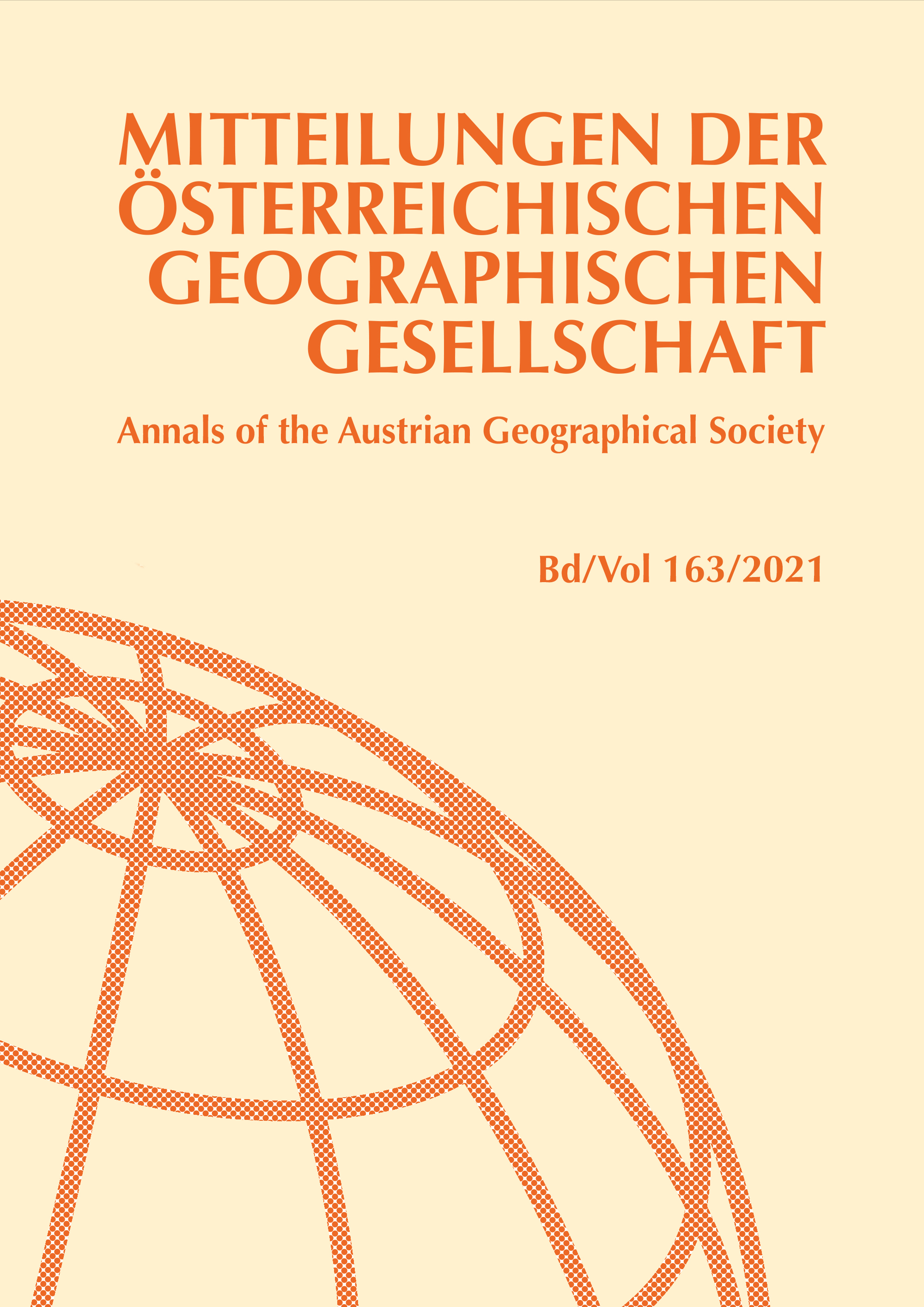
Mitteilungen der Österreichischen Geographischen Gesellschaft Band 163/2021, pp. 265-279, 2022/04/04
Band 163 (Jahresband), Wien 2021
Volume 163 (Annual volume), Vienna 2021

During recent years, financialisation has emerged as a buzzword and widely used concept across disciplinary boundaries. Despite the increased interest, financialisation has hardly been investigated in a regional perspective yet. Consequently, also frameworks for an appropriate empirical analysis are rather scarce. The present article addresses this shortcoming and presents an overview of the current and future empirics of regional financialisation. In doing so, the core part of the analysis focuses on three questions: what, where, and when do we measure? First, an examination of quantitative indicators and variables used in the current financialisation literature and their suitability for analysing regional financialization is given. Second, an evaluation of the effects of measuring financialization on different spatial levels is presented. Third, considerations on the implications of measuring financialisation at different points in and across time are outlined. Overall, the analysis demonstrates that investigating regional financialisation in a quantitative setting is anything but straightforward and requires a trade-off between data availability and explanatory power of the used data. Thus, improved data availability on the subnational level would enhance the possibilities of future research to analyse the complex issues and questions tied to regional financialisation.
Keywords: Regional financialisation, empirics, quantitative economic geography